Key Architectural Company: Diversified Designs and Construction Projects in Ghana
Hussein Fakhry presents Key Architectural, a company with an experience of over 22 years on prestigious and diversified designs and construction projects. Key has earned a reputation for a dedicated service, a conscientious processing, a vanguard approach, an accurate lead time, and a perfect finishing. The company’s vision is to surge ahead at the vanguard of ground-breaking architectural and construction groups, providing clients with only best-in-class services with the aim of outrunning their requirements and expectations.
Interview with Hussein Fakhry, Principal Architect & Managing Director of Key Architectural Company
What are the trends here in Ghana and in the region in the architecture sector?
In the architecture and design industry today, Africa is changing more and more, both economically and socially. It is fighting out of the poor country stigma into a developing, middle class, country. People are becoming more sensible to design, style, quality, and to taking on added value investments, products, and lifestyles. The image of coming to Africa and expecting undeveloped areas is no longer there. Today, we are lucky to be present in a very dynamic and fast-changing environment in terms of design understanding and appreciation for quality. There is a lot to be done in that direction and that sector. The future, not only in Africa, but the future all over the world is to look at adding remarkable value to whatever you do, which is obviously done not through the design only, but the accompanying quality. Quality does not dictate increased expenses or being out of budget. Quality is giving an extra thought to your plans and designs; it is in thoughtfulness. This is how I see the future of any project that we do, be it a house, a building, a school, a university, an office or even a farm. Today, we cannot stick to old mentalities while the world is developing. When you are spending money, you have to make sure that you are spending 100,000 but you are looking for a value of 150,000. If you fail to keep that in mind, your success will be very limited. This can only be done when you think about the design and when you work meticulously on paper before working on the ground. This is important for the African market and the Ghanaian market, particularly. But it is applicable all over the world in every business domain.
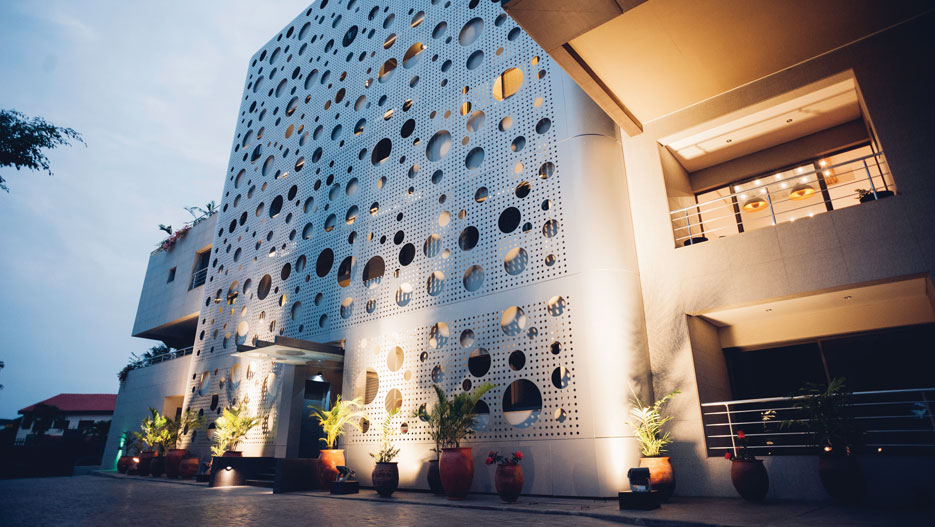
Do other companies and your competitors in this sector share that belief with you? Is this simply a general trend?
My vision in three years’ time is to have at least a certain number of important projects, not in terms of scale, but in terms of impact and positioning. I see that this is achievable, and this is something that we are working hard to put in place.
I am not the only one who has this vision. Because in this sector, you should not only have the vision, but the tools, and the mind-set to be able to execute something like that. We have a good advantage because we take each design that we do, and we work on it very critically to apply it to the ground and to achieve it. You must have the talent and the know-how to put the design on paper. But it also takes strong will, firm understanding, and unstoppable stamina to execute your design on ground and to produce the same image that you have drawn up on paper. This is where we always try not to fall short on our pre-set expectations. Sometimes you have very nice visuals of the project. You see it in a magazine or on a website or social media and admire it, but when it comes to execution — many times, I am very worried about failing to materialize those visions. This is where talent, know-how, seriousness, and experience come in to execute projects that are as attractive as they were initially designed.
What are the challenges that architectural companies face in this environment?
The challenges are more of a technical nature. If you want to do something different today, something out-of-the-box design wise, it won’t be as easy to execute. Or if you want to execute it by importing and having people from other countries where the technical know-how is more developed to implement it, it will cost you a lot of money and then it becomes unfeasible. If you want to execute something different and something special, you must, as an architect or a designer, give it more from your own self, from your experience, your time, and your health to get it done the way it should be done. This is the stamina. That is very important in every business.
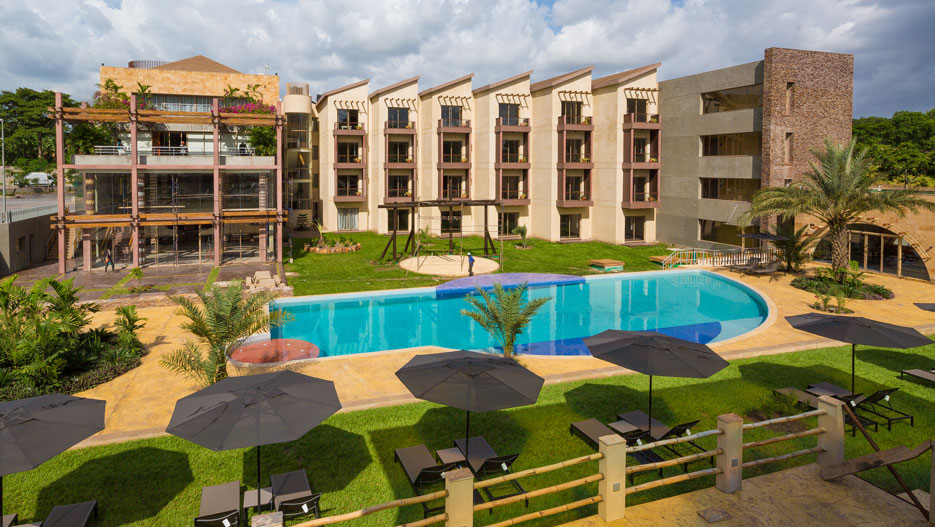
What kind of projects do you do? Do you have any success stories in Ghana?
Two years ago, we were interviewed about the Iris Boutique Apartments project in the Airport Residential Area in Accra. At that time, it was still in the beginning stages, and today it has been handed over. I am very happy and proud to say that it turned out to be a success in terms of design, style, look, as well as what it has added to that neighbourhood where it was built. Sales and rentals are further evidence to this success. It is not just a building. The feedback on the project is that it has become a landmark in the area. It has added a lot to the environment. It is a big project, yet remains soft on the ground. We are now preparing to launch a new project in Labone, which is also a residential project in a residential area. It will be called Beyond. Very soon, the design and the visuals will be shared, and it will also be an additional fingerprint in this beautiful city. We are involved in many design projects where we only design for clients and we act as consultants. We are now busy with a project for Coral paints; a showroom and a commercial space. We hope it will add value to the image of this company and add a new experience to the shopping attitude. We got involved in a very intriguing project recently, the Tetteh Quarshie Cocoa Museum. This was an initiative by the Tourism Ministry. We took part of its initiation, and we are the designers and the architects of the project. We are hoping that this project adds a different angle to our professional experience because it is more cultural and more public than the usual projects. It is more native to Ghana in terms of tourism, culture, and heritage. It is a project that is involved with the cacao history of the country — in terms of perception and implementation.
What are your priorities this year?
The priority of Key Architectural Company in Ghana is to be more up to date in the realm of design and technology related issues. In addition to the projects we are working on in design, construction, and development, we are also very busy upgrading our performance platform in terms of software for design and more organizational tools and procedures for the company. In every business, there are new trends, technology, and management tools. We are working on upgrading that to become more efficient and to have a better advantage in that direction.
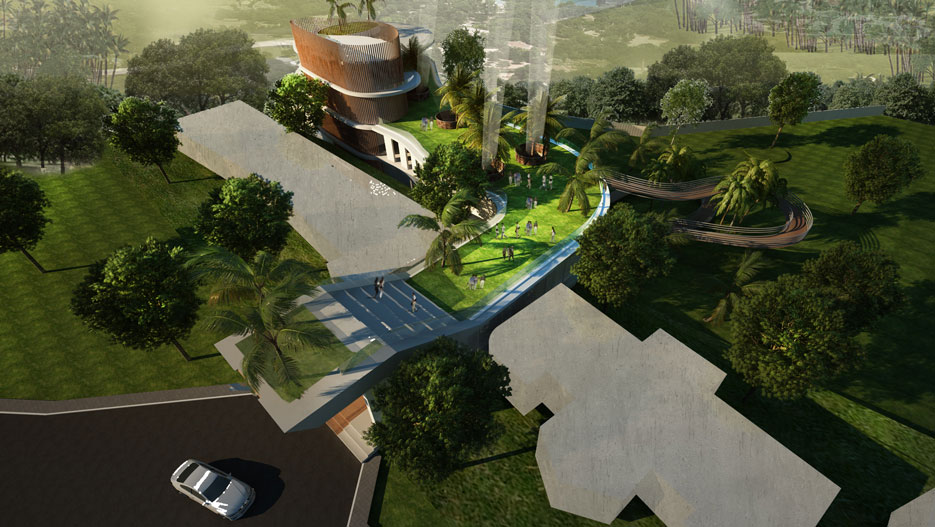
Are you looking for partnerships or exchanges?
Upgrading our systems is not something that requires partnerships. It needs planning and consultations from experts on the best up to date systems and software. In terms of development, of course we are always looking for partners, for new clients, and new teams to be on board with us to be able to develop more projects and to open new areas and new cities in the region. Now, we are working on projects in neighbouring Abidjan. We still see a lot of potential and capacity that we would like to use for our projects and to gain access to people and to resources.
What type of partnerships are you looking for?
Our group is not limited to one type of work or partnership. We have many clients we only do design for. We make the design, give them the construction documents, and they do the building. We do other turnkey projects where we design and build. We do projects where we partner with developers. We have partners to team up with us on particular projects that we develop from start to finish, and they become a kind of silent partner on the Board of Directors. Also, we have many ideas and plans that we are working on where we might need only funds. We are open, and we are very positive on the results that we can achieve because we have a competitive edge in design, execution, pricing, and ideas and concepts for projects. I spent one third of my life in Africa. I have a very good understanding of this market. When I walk down the street or on a project, I can see what is needed in that particular area, what works and what does not work.
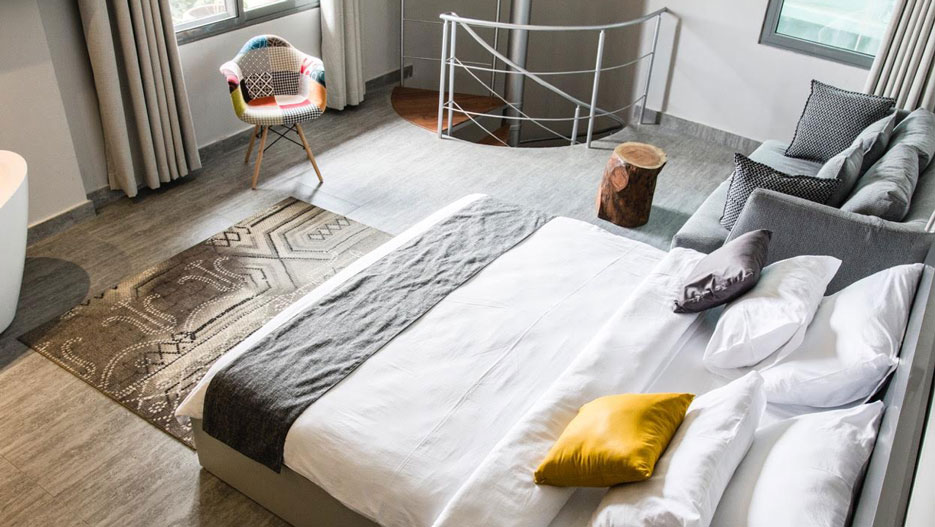
Can you give an example where you saw what could be done ahead of everybody else?
I spent the first two thirds of my life in a city that is very compact and small, so I was very used to city life and I am a very urban-oriented person. When I first came to Ghana, I wanted to be in the street where I could walk, stop by a coffee shop, or stop and buy a shirt or other product. I was missing that experience in my life. Then, I came to Osu Oxford Street in Accra and I had that feeling that this street had the potential for something like that. I wanted to build on that urban background. I had my first office in Osu and then I started to work on designing some projects, and the first time I had the opportunity to own land I chose to own land in Osu. This is also where we recently finished the Roots Hotel Apartment which has eight levels of different types of apartments. Many people and many of my friends were telling me I could have put that same building in the Airport Residential area and why would you put something like this in Osu between the small houses and so on. But I felt this was a different market. I did not want to do another gated community. I felt that this concept was going to work because for any visitor to this city, the first thing they would like to experience is to walk in the street and buy something from the seller or go to the bank or the Ministries. When I finished the project, we were lucky that it was a successful one. I loved the area, and the price of the land at that time in Osu was less expensive than the price of the same land in the Airport Residential area or Cantonment. I made a building that could fit anywhere in Accra, but I chose to put it in Osu. I repeated that with the Urban Hotel, which used to be an old hotel called the Penta Hotel. We acquired the hotel, rebranded it, did a full renovation, and then put it back on the market. This was also a successful project. It is a way to pay something back to this city. If you have a project that is dead, if you are smart, you can give it life. You cannot just leave dead buildings or dead spots in the city and only look for new things. There are many areas in Accra with great potential and wherever you go you can feel it.
What kind of hotels and apartments do you have?
Roots Hotel Apartment is a hotel apartment concept. It is made for short term and long term stays for business travellers, tourists, visitors, and Ghanaians living outside Ghana that come to visit their families. The advantage here is that you rent a small apartment, but you get hotel service. It is very functional and very private. Many people prefer to use this type of hotel these days. There are only 42 rooms as opposed to 150 or 200 rooms. It is nicely designed, nicely decorated and styled, and has a local feel. It is also in the middle of the city. It is accessible and very safe. Our other hotel is Urbano Hotel. It is also a budget business hotel, nicely designed to give you full comfort in the middle of the city. It is very close to Oxford Street and is accessible to everything. The rooms are designed in a way that you have a feel of the city and the street and of this part of the world. It has 43 rooms, all different types. We also provide good food, good breakfast, a small gym, and a small conference room. It is not the biggest hotel. It is small, but it fits the purpose.
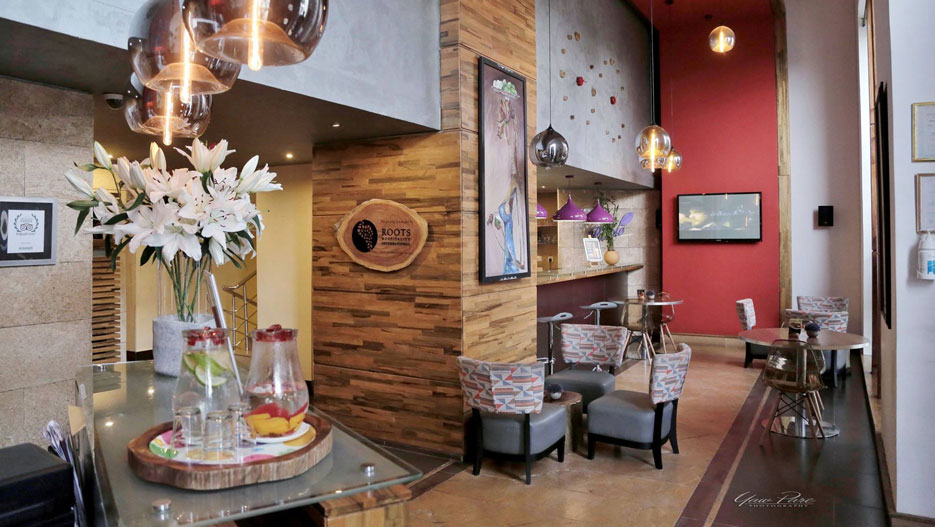
Project yourself into the medium term. In 2020 or 2021, what will the group be? What do you want to achieve if everything goes according to plan?
My vision in three years’ time is to have at least a certain number of important projects, not in terms of scale, but in terms of impact and positioning. I see that this is achievable, and this is something that we are working hard to put in place. Today, between the design and the contracting part, we have around 100 employees on our payroll. We are looking in the coming three to four years to double that number because we also want our projects to be doubled. In terms of design and architecture, we will follow the international and local trends. My biggest and most important dream as an architect is that our buildings will be memorable wherever they stand. We as architects, do more than business, we have a message! In Abidjan, we have now three ongoing projects. We are hoping that in the coming three years, the number of projects handled in there will increase and that we can project the same vision for the number of staff and the turnover of the company.
CONTACT DETAILS
WEBSITE: www.keyarchitect.com
EMAIL: info@keyarchitect.com
ADDRESS / PHONE NUMBER:
• LEBANON, Beirut: Al Murjan Bldg., Bir Hassan | T/F: +961 1 821459 / +961 1 826586
• GHANA, Accra: H/No. 83, Klotey Crescent, Labone | T/F: +233 302 798 005/006 / Mob: +233 24 4 566 566
• ABIDJAN, Ivory Coast: Marcory, Zone 4, Rue Thomas Edison, Résidence Sache | T: +225 212 547 22 / Mob: +225 08 05 03 52
MORE CONTENT
INTERVIEWS:
• Key Architectural Company: Diversified Designs and Construction Projects in Ghana
• Architectural, Construction and Design Solutions: Hussein Fakhry Presents Key Architectural Group
VIDEOS:
• Vision for the Future of Key Architectural Company by Hussein Fakhry
• Ghana Real Estate Sector: An Overview of Key Architectural Group’s Latest Residential Projects
• KEY Contracting: Hussein Fakhry Talks Delivering Value Added Projects and Sustainable Developments
EXECUTIVE PROFILE:
• Hussein Fakhry, Co-Founder of Architectural Design and Construction Group Key Architectural
COMPANY PROFILE:
• KEY: Architectural Design and Construction Solutions in Ghana, Ivory Coast and Lebanon
LATEST NEWS:
• KEY: Discussing Sustainability and Social Responsibility with Architect Hussein Fakhry
• From Commercial Office Buildings to Residences, KEY Designs the Future of Real Estate in Ghana
FAIR USE POLICY
This material (including media content) may not be published, broadcasted, rewritten, or redistributed. However, linking directly to the page (including the source, i.e. Marcopolis.net) is permitted and encouraged.